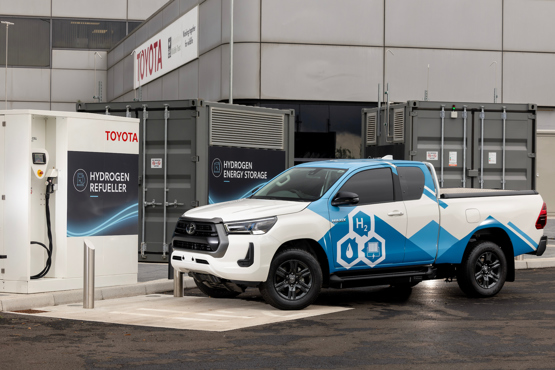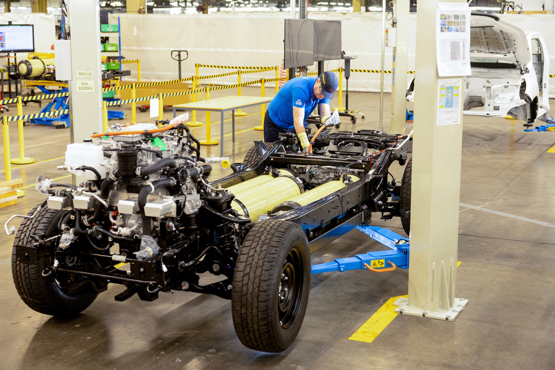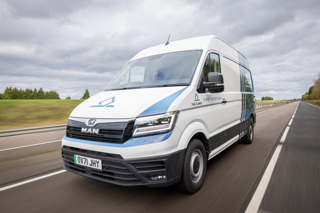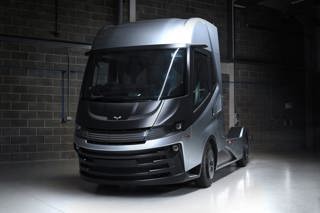
Toyota has developed a hydrogen-powered Hilux pick-up with a range of more tha 365 miles.
The prototype vehicle, based on the existing Hilux, was built using funds secured via the UK Government’s Advance Propulsion Centre (APC).
It was engineered at the company’s UK vehicle plant in Burnaston, Derbyshire, in collaboration with Ricardo, ETL, D2H and Thatcham Research.
The hydrogen-powered Hilux utilises components from Toyota’s second-generation fuel cell system, as featured in the latest Toyota Mirai saloon, to transform a Hilux into a zero-emission vehicle.
Three high-pressure fuel tanks are used, giving the Hilux an expected driving range of more than 365 miles. A battery, which stores electricity produced on-board by the fuel cell, is positioned in the rear load deck, avoiding loss of cabin space.

Richard Kenworthy, TMUK managing director, said: “The project team have accomplished an incredible job in a very short space of time, from creating the prototype build area to completion of the first vehicle. The UK Government funding has enabled us not only to develop a new vehicle in record time, but also to upskill our teams to work on hydrogen-related technologies, something we hope to build on in the future.
“This is a great vote of confidence in UK manufacturing and its potential to deliver carbon-free vehicles to meet future targets.”
The prototype is the first of 10 that will be built by the end of this year. These will undergo rigorous testing around the world to ensure safety, dynamic performance, functionality and durability meet the high standards required of a production model. Once successful performance results have been secured, the intention is to prepare the vehicle for small series production.
The APC funding will enable TMUK to develop hydrogen technologies for this specific vehicle market segment during the next three years.
Glasgow-based HVS was also awarded funding by the APC, to develop a hydrogen-powered HGV.






















Login to comment
Comments
No comments have been made yet.